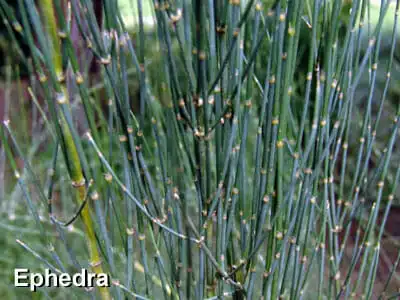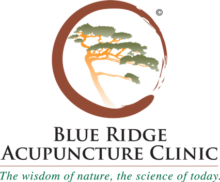The Ephedra Controversy: How Chinese Medicine uses Ephedra safely
On December 30th, 2003, The Food and Drug Administration announced that it was going to ban use of the herb: Ephedra (Ephedra sinica) in the United States. Any herbal product is considered a dietary supplement in the United States and up until recently was regulated as a food. In the landmark DSHEA (Dietary Supplement Health Education Act) of 1994, the FDA required all manufacturers to take full responsibility for honest labeling of their products. Many companies took advantage of the situation; some going as far as claiming certain active ingredients, when in fact, private laboratories found that they didn’t exist in the bottle.
As consumers became aware of a great discrepancy in the quality of supplements, the dietary supplement industry asked the FDA to regulate the industry. In recent months new legislation has been passed that is a boon to the industry virtually guaranteeing that what a company puts on the label is going to be in the product.

The FDA reserves the right, however, to pull a product off the shelf if it deems it is unsafe for consumers. Such is the case with Ephedra, the first herb to be pulled from the market by the FDA. The decision came largely as a result of the death of Baltimore Orioles pitcher Steve Bechler in July of 2003. Bechler died of a heatstroke and an autopsy revealed that high levels of ephedrine (one of the active alkaloids in the plant) were found in his blood. His wife is suing the manufacturer of the Ephedra product for $600 million dollars.
Ephedra (Ephedra sinica) is a Chinese herbal medicine used in China for thousands of years that has in recent years been marketed and sold as a weight loss aid and central nervous system stimulant. Manufacturers of dietary supplements, herbalists, concerned health care professionals and users of the herb are outraged and worried that increasing governmental restrictions will deny freedom of choice in health care. Proponents of the dietary supplement argue that proper labeling with relevant risk warnings, and guided responsible usage of the herb, are enough to give people the right to use the product. The FDA however says that enough evidence has been gathered to demonstrate that the risks outweigh the benefits. The jury is still out on whether or not Ephedra will be banned from the offices of licensed acupuncturists and herbalists. In most cases, practitioners of Chinese medicine never use the drug as a weight loss aid or as a stimulant.
In Chinese medicine, Ephedra, called Ma Huang, is used in a variety of situations, most of them acute. The ancient classical texts of Chinese medicine warn physicians not to use Ma Huang over long periods of time or at too high a dose. Ma huang is considered warming in nature. Its flavor is pungent and bitter. It promotes diaphoresis (sweating) and is used to benefit asthma, wheezing and in some cases coughing. It was also known to promote urination. Most frequently the herb is used in cases of what traditional Chinese medicine (TCM) calls: wind-cold. A wind-cold invasion in Chinese Medicine roughly corresponds to a particular constellation of signs and symptoms similar to the common cold: there may be cough, aching and chills, runny nose, and no sweating. In the case of wind-cold, ma huang opens the pores and diffuses the lung qi (the body’s vital energy) allowing sweating. This pushes the pathogen out of the body by releasing the exterior, or skin.
Though Ephedra may be used irresponsibly by some consumers and though when used on a long term basis for weight loss there may be increased risk, these are not good enough reasons to ban the use of the herb by responsibly trained acupuncturists and health care professionals. Used for thousands of years in China safely and effectively, Ma Huang is an incredibly effective herbal medicine when used appropriately and expertly. Current media portray only the popularized uses of Ephedra but say nothing of its potential in cases of asthma. Though over the counter sales in weight loss products may need to be restricted or banned, we must preserve the right and freedom to practice Chinese medicine using the full range of its materia medica for the benefit of all people everywhere.
@ James Whittle M.S. L.Ac. All rights reserved.
Email: james@blueridgeclinic.com
Call: 828-254-4405 for a Free Consultation
